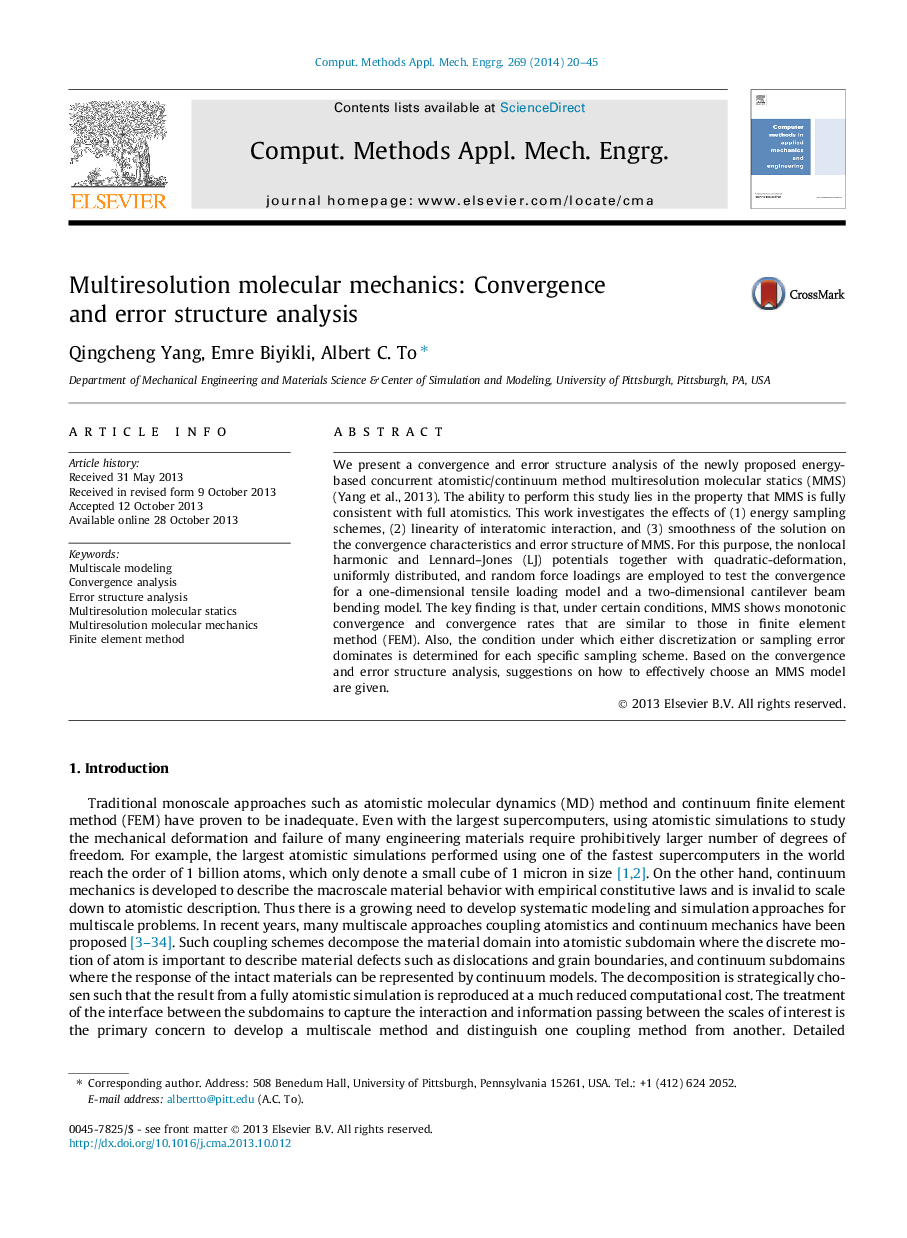| Article ID | Journal | Published Year | Pages | File Type |
|---|---|---|---|---|
| 497900 | Computer Methods in Applied Mechanics and Engineering | 2014 | 26 Pages |
•This paper presents a convergence study and error structure analysis of MMS.•Convergence behavior of MMS schemes are identified under different conditions.•Error structure of various MMS schemes are determined for each condition.•Effects of solution smoothness and linearity of interatomic interactions are studied.•MMS shows FEM-like behavior in terms of convergence order in certain cases.
We present a convergence and error structure analysis of the newly proposed energy-based concurrent atomistic/continuum method multiresolution molecular statics (MMS) (Yang et al., 2013). The ability to perform this study lies in the property that MMS is fully consistent with full atomistics. This work investigates the effects of (1) energy sampling schemes, (2) linearity of interatomic interaction, and (3) smoothness of the solution on the convergence characteristics and error structure of MMS. For this purpose, the nonlocal harmonic and Lennard–Jones (LJ) potentials together with quadratic-deformation, uniformly distributed, and random force loadings are employed to test the convergence for a one-dimensional tensile loading model and a two-dimensional cantilever beam bending model. The key finding is that, under certain conditions, MMS shows monotonic convergence and convergence rates that are similar to those in finite element method (FEM). Also, the condition under which either discretization or sampling error dominates is determined for each specific sampling scheme. Based on the convergence and error structure analysis, suggestions on how to effectively choose an MMS model are given.
